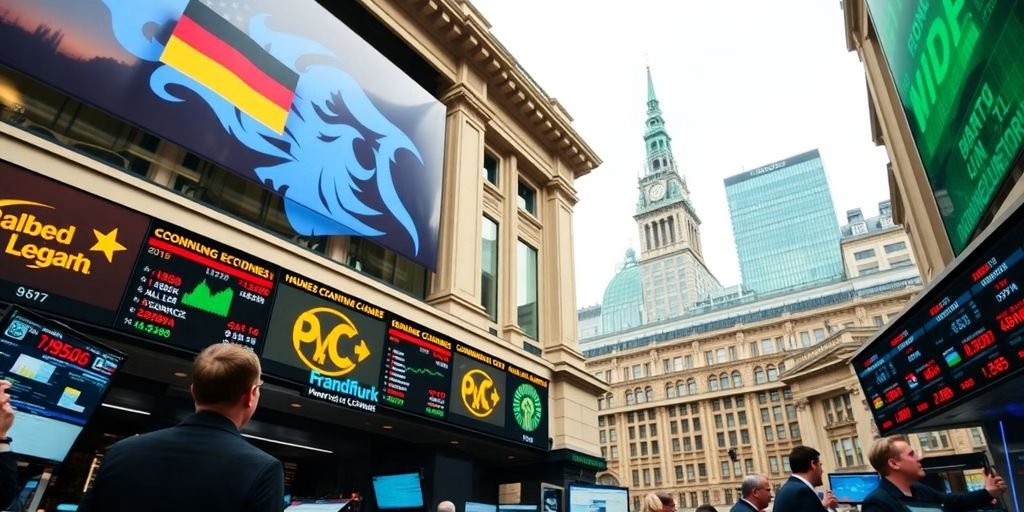The German stock market has recently experienced significant fluctuations, driven by contrasting business data and market sentiment. While the DAX index initially dipped due to disappointing service sector performance, it later surged on positive trade news and expectations of an interest rate cut by the European Central Bank (ECB).
Key Takeaways
- The DAX index fell by 0.51% due to weak service sector data.
- A subsequent rise of 2.85% was observed as trade tensions eased and rate cuts were anticipated.
- Mixed signals from the manufacturing and service sectors complicate economic outlooks.
Economic Indicators Impacting the DAX
The DAX, Germany’s benchmark stock index, has shown volatility in response to recent economic indicators. The following factors have played a crucial role:
- Service Sector Contraction: The HCOB Flash Germany Composite PMI fell to 48.6 in May, indicating a contraction in the service sector, which is a worrying sign for investors.
- Manufacturing Gains: Despite the service sector’s decline, manufacturing has shown some resilience, creating a mixed economic picture.
- Ifo Business Climate Index: A slight uptick in the Ifo index suggests some optimism, but analysts caution against overconfidence due to ongoing stagnation risks.
Market Reactions to Trade Developments
The stock market’s reaction to international trade developments has been notable:
- Easing Trade Tensions: The EU’s decision to pause trade countermeasures against the US and engage in tariff discussions has positively influenced market sentiment.
- Anticipated ECB Rate Cuts: Expectations of a 25 basis point cut in interest rates by the ECB have further buoyed investor confidence, leading to a significant rise in the DAX.
Sector Performance Highlights
Amidst the market fluctuations, certain sectors have shown resilience:
- Pharmaceuticals: Bayer’s stock rose by 2.70% following the approval of its drug Eylea in over 50 markets, showcasing strength in the pharmaceutical sector despite broader market challenges.
- Banking Sector: Commerzbank shares increased by 0.87%, supported by strong Q1 forecasts, indicating stability in the banking sector amidst economic uncertainties.
The Bigger Picture: Navigating Economic Complexity
Germany’s economic landscape is characterised by mixed signals, with the service sector struggling while manufacturing shows signs of strength. This complexity poses challenges for policymakers and investors alike:
- Interest Rate Decisions: The ECB faces a delicate balancing act as it navigates low inflation in services against rising input costs and fluctuating manufacturing prices.
- Global Economic Implications: The mixed performance of Germany’s economy could influence global strategies, particularly as major economies grapple with inflation, growth, and employment challenges.
In conclusion, the German stock market’s recent performance reflects a broader narrative of uncertainty and opportunity. Investors are advised to remain cautious, focusing on resilient sectors while keeping an eye on evolving economic indicators and international trade dynamics.
Sources
- German Stock Market Dips With Troubling Business Data, Finimize.
- German Stock Surge Shows Positive Market Sentiment, Finimize.
- German Business Sentiment Rises: Stock Market Impact?, TipRanks.
About Finanz2Go
About Finanz2go – Meet our team!
At Finanz2go, we specialize in providing transparent, independent financial advice tailored to the needs of expats, employees, and self-employed professionals living in Germany. Based in Berlin, we are certified under §34f GewO and committed to helping our clients make informed long-term financial decisions.

